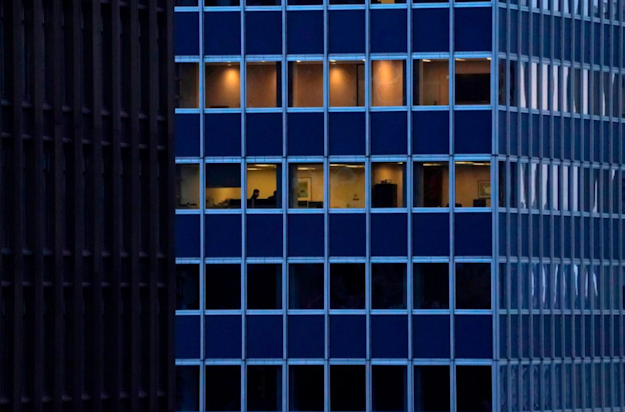The Hardest Question for Corp. America Right Now: When Should Offices Reopen?
Workers Remain Anxious About In-Person
Meetings - Feeling Safe in 2022?

Another Remote-Work Year Looms as Office-Reopening Plans Are Delayed
Return dates get pushed to September or beyond, keeping firms and
employees in ‘moment of limbo’
The vaccine roll-out failure has scuttled reopening of offices for millions
of workers.
Many companies are pushing workplace return dates to September—and beyond—or
refusing to commit to specific dates, telling employees it will be a
wait-and-see remote-work year.
&uuid=(email))
Return-to-office dates have shifted so much in the past year that some companies
aren’t sharing them with employees.
Nearly a year of makeshift work at home has weighed on employees, leaders say.
While many companies say productivity is up,
executives worry that creativity is suffering and say that
burnout is on the rise. Even so, bosses struggle to say when things will
change.
“Everyone’s in the moment of limbo. They want certainty, but they know they
can’t have it.”
A new survey of 2,200 U.S. workers by the Conference Board, a research group,
found that 44% of employees polled didn’t know their company’s plans to
return to the workplace.
Many executives say it has become tougher to predict when
white-collar employees should go back to offices than it was last year.
They cite news about a slower-than-hoped vaccine rollout, the fast spread of
mutant virus strains and polls that show many workers remain anxious about
in-person settings.
“Sometime in 2022 is where I’m thinking” all staffers
will feel comfortable coming back. “Then we can feel safe.”
Labor Day is an increasingly popular target date for employers. “In some ways,
Labor Day is a completely arbitrary date,” he says. “On the other hand, it’s the
start of a new school year.”
Current office-occupancy rates are highest in parts of the country where large
school districts have reopened. Right now, that means Texas: In Dallas, Austin
and Houston, major school districts have offered in-person learning for many
months, and offices are roughly 35% full, according to Kastle. By comparison, in
New York City, where schools are open part-time for in-person learning, office
occupancy is less than 15%.
Some say they will wait for the population to reach herd immunity before
reopening, a goal that could further cloud timing.
wsj.com